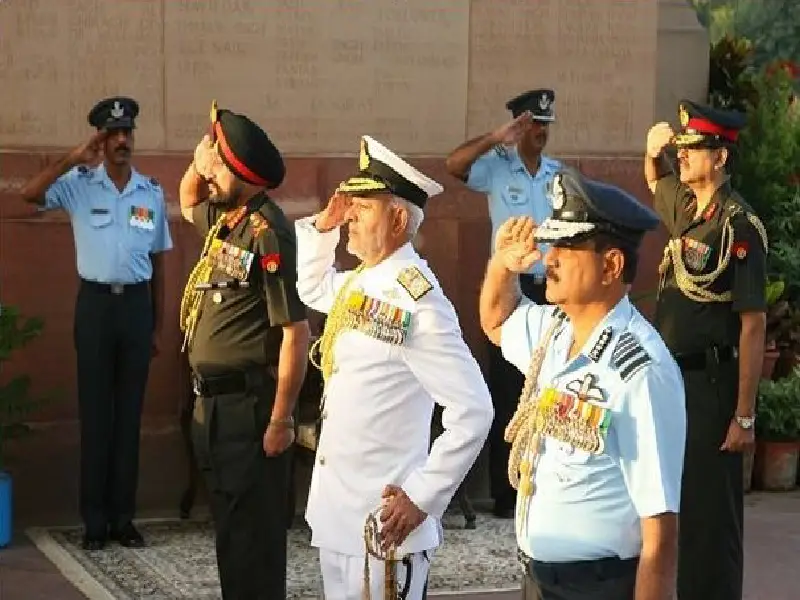Criminal Justice System in the Armed Forces
By TJ Reddy
Hyderabad: The recent cases of violence against women in various parts of the country have triggered protests from citizens across the country. The case of Disha at Hyderabad which involved rape and murder followed by the encounter killing of alleged accused echoed the need for quick justice exposing the maladies of the prevailing justice system in the country. Such incidents, unfortunately, are regularly happening, not just limited to one place or one nation. It may perhaps be appropriate to first let the readers know that India is not a rape capital of the world, as some tend to portray.
The rank of countries in the world in terms of rape:
(Source - data from World Population Review, 2019)
1. South Africa
2. Botswana
3. Lesotho (formerly Basutoland)
4. Bermuda
5. Sweden
10. Australia
12. Belgium
13. America
25. France
41. Germany
42. Netherlands
45. Italy
70. Russia
89. Singapore
91. India
Many rapes go unreported in various countries including India. Rape is the fourth most common crime against women in India. According to the last National Crime Records Bureau (NCRB) annual report, 98% of the cases of rape were committed by someone known to the victim. The ‘Me Too movement’ marginally increased awareness around sexual misconduct in many countries including India.
Sexual offences in the military:
Incidents of sexual assault are real and the recognized problem, both in the military and in civilian life. While studies suggest that the number of sexual assaults in the military may be far less than the number in civilian society, sexual assault has a uniquely greater damaging effect on the military, such that even one incident is unacceptable.
Incidents of sexual assault are detrimental to morale, destroy unit cohesion, show disrespect for the chain of command, and damage the military as a whole, both internally as well as externally. This is the main reason that every offence is dealt with in a time-bound manner in the armed forces.
The ethos of armed forces:
The members of the armed forces are from the same strata of society and therefore are no different when it comes to early upbringing and imbibing social values. Then how come the Indian Armed Forces are considered by the public to be synonymous with honour, discipline, integrity, loyalty, courage, duty, respect, sense of sacrifice, patriotism, selfless service, moral values and ethics.
It would not be erroneous to say that the expectation level of integrity and moral values of defence personnel is much higher than their civilian counterparts who gladly enjoy the liberty to abdicate under conditions of stress!
“The moral and ethical value system in the Armed Forces is not an abstract concept. In fact, it is the very foundation, upon which, the entire edifice of the Service organization has been built. By virtue of a strong moral and ethical value system, the Armed Forces are held in high esteem, by the citizens of the country,” former Army Chief General VK Singh had said in an interview during 2011.
From a civilian’s perspective, it is not only important what the armed forces do, but also how they do it, which raises the bar of public expectations for exemplary behaviour. Indian armed forces, the largest volunteer army in the world follow the tradition of soldiering with deep-rooted sentiments and demand unlimited accountability from its personnel. Public thus realize that the military is fundamentally different from the civilian world. Ethics and moral values are never dispensable.
They are an integral part of human survival. I believe that the sheer dynamism of defence institutions and their historical traditions would ameliorate all discrepancies and mould the character of a soldier into the desired configuration. Justice system is one such institution that is nurtured to ensure that black sheep in defence forces are dealt with expeditiously.
The military justice system is a well-developed, unique, and integrated criminal justice system, which handles many criminal cases per year, ranging from minor violations to major felonies. In all of these cases, the system works to ensure justice is done strictly observing the dictum 'Justice delayed is justice denied’.
Fast track the judicial process:
There will always be widespread outrage to the brutality of perpetrators in raping and killing, unlike in the cases of other sexual offences of a lesser degree. Expeditious legal process and awarding appropriate punishment alone may not fully ensure the safety of women. Preventive measures such as gender-sensitive gender education need to be undertaken as a reformative process that will, in the long run, help the behavioural aspects in society to reduce the crime rate including rape. The real culprit at present is a moribund judicial system that fails to deliver
expeditious justice. India needs the rule of law. Everyone sees this, but the courts must see this too. It is here the system can borrow a leaf from the defence forces.
In a society the accused must fear, the criminals should fear and not the women. Fear of getting caught, fear of justice and fear of punishment is absolutely necessary.
Criminal administration should be improved in the country. Strengthening of the four wings of the Criminal justice system – police, prosecution, judiciary and prisons is the need of the hour.
Author, a Wing Commander from Administration branch in the IAF, was Fighter Controller who actively participated in 1965 and 1971 wars. He was awarded Vishisht Seva Medal by the President of India in January 1976. He is currently the President of Air Force Association AP & Telangana branch.
Views expressed by the author are personal.